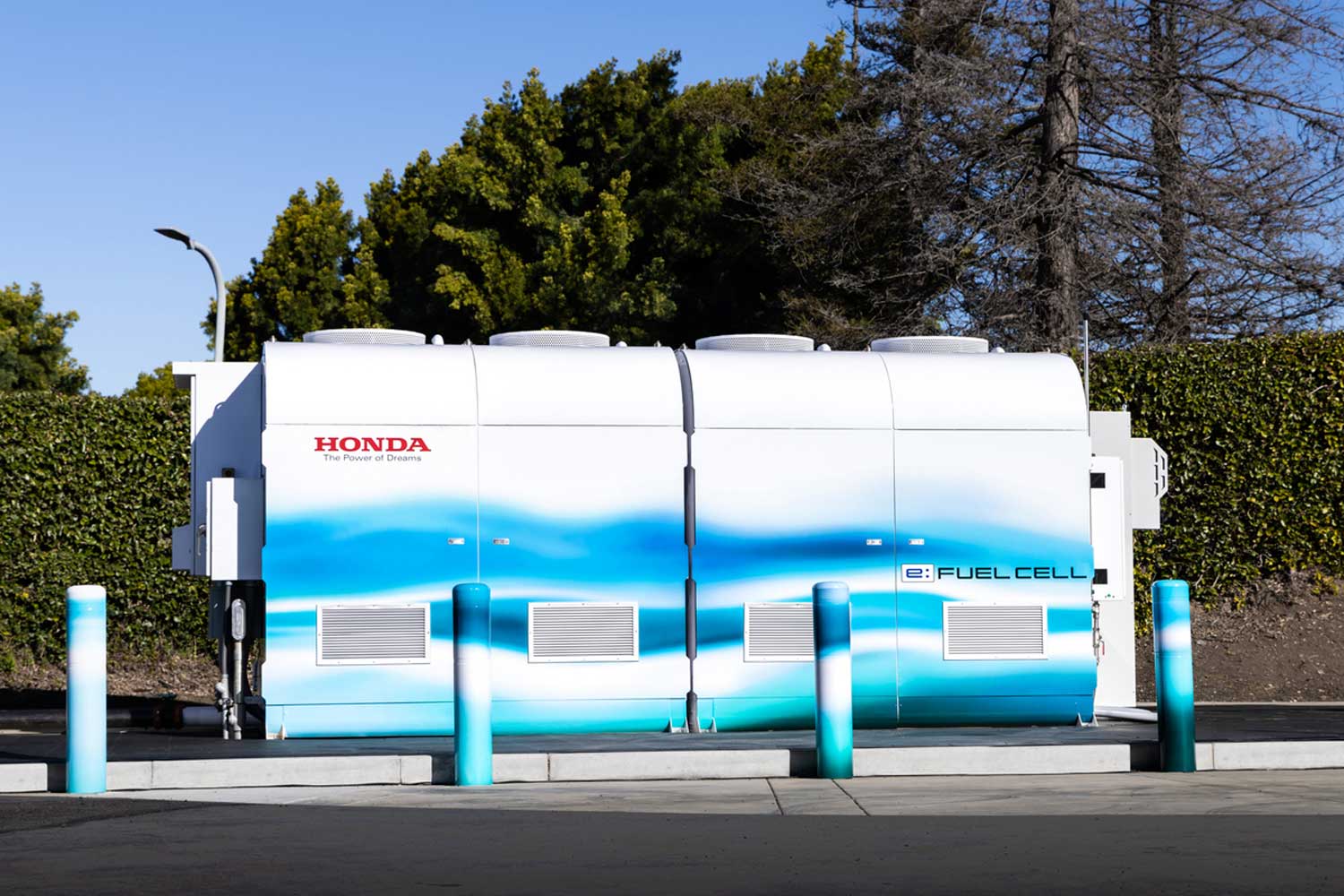The Death of Hydrogen-Powered Cars May Be Greatly Exaggerated
Several car companies are working to use hydrogen as fuel, an alternative to electric vehicles.
 Honda
Honda
Article QuickTakes:
Automakers have spent billions of dollars in a mad dash to electrify their fleets, but not all of them are approaching electrification in the same way. While some companies such as Tesla shy away from hydrogen fuel cells, BMW and others still see a place for it in the car industry's future.
The BMW iX5 Hydrogen Prototype
BMW took a crack at a hydrogen-powered vehicle back in 2005 with a 7 Series sedan-based hydrogen prototype. That vehicle wasn't electrified; instead, it burned hydrogen in a modified V12 engine that could also burn gasoline.
BMW's hydrogen technology has evolved significantly since then. The X5-based iX5 Hydrogen prototype, which the automaker unveiled this year, is an electric vehicle that features a more advanced powertrain. Four years in the making, the iX5 Hydrogen features two tanks used to store gaseous hydrogen, a fuel cell in which a chemical reaction turns hydrogen and oxygen into electricity, a small lithium-ion battery pack, and the same rear-mounted electric motor used in the iX.
Refilling the fuel tanks takes just three or four minutes — assuming you can find a hydrogen fueling station — and BMW quotes a maximum driving range of about 300 miles, regardless of outside temperature. In contrast, charging a typical electric vehicle (EV) can take hours and range can drop dramatically in very cold or very hot weather.
The iX5 Hydrogen's battery pack is much smaller than, say, the iX's, so it's lighter and requires fewer raw materials to manufacture, an important advantage as the industry expects to face significant shortages of key materials used for EV production.
BMW's Plans for the iX5
BMW didn't design the iX5 Hydrogen to sell it. Instead, it plans to build fewer than 100 units and allocate them to real-world drivers to gather feedback about the technology. Its engineering team will use that feedback to fine-tune the system — costs notably need to come down — and the first series-produced hydrogen-powered BMWs could make their debut in the late 2020s. It's too early to know which model or models will have the drivetrain, but BMW stressed that hydrogen is best suited to larger vehicles that regularly drive long distances or tow.
Who Else Is Working on a Hydrogen Car?
BMW is working jointly with Toyota to make hydrogen-electric cars a viable alternative to plug-in EVs. Toyota already sells a hydrogen-electric model called Mirai, though the sedan is sold only in select markets. Toyota is also testing a hydrogen-burning engine in a Corolla that was heavily modified for racing. It’s not clear when, where, or if this drivetrain will reach production.
Hyundai invested substantial resources into hydrogen technology as well, and its lineup includes a hydrogen-electric crossover called Nexo.
General Motors and Honda jointly operate a hydrogen vehicle development program. Honda has sold a handful of hydrogen-powered models, including a version of the last-generation Clarity. It plans to put its next-generation fuel-cell-powered drivetrain into about 60,000 cars a year in 2030.
Of course, that's a rounding error when compared to the millions of cars sold around the world each year, but that's how the EV segment started, too.



